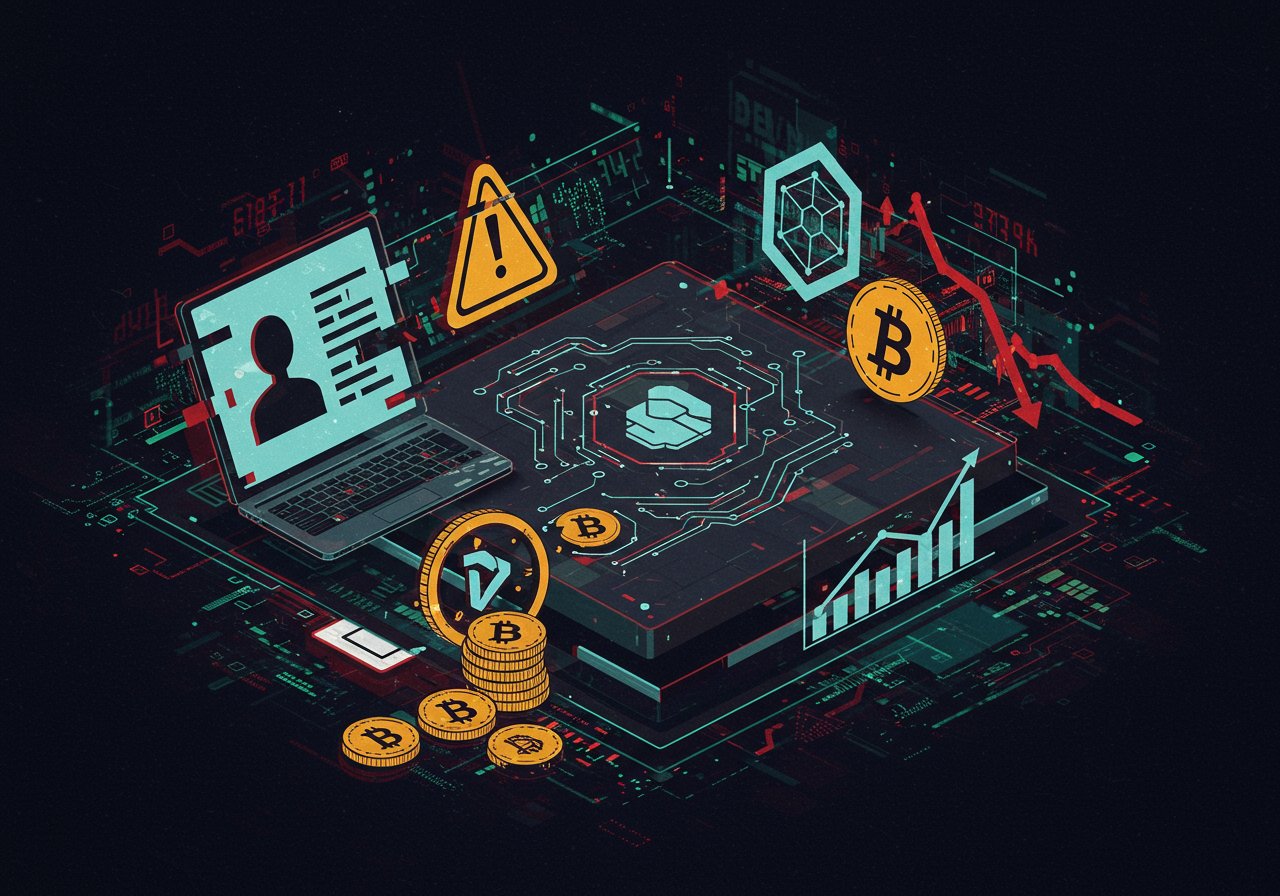
The Rise of Digital Identity Theft in Crypto
In the fast-paced world of cryptocurrency, where financial transactions and personal identity intertwine, digital identity theft is not just a nuisance; it’s a serious threat to your assets. It’s easy to underestimate the exposure we face online. Every wallet connection, exchange login, or saved payment method expands our digital footprint, making our data more valuable and vulnerable. In a world where information is currency, your online identity can be a jackpot for hackers.
Experts predict that over 50 billion digital identities could be compromised worldwide by 2025, a significant increase from previous years. Crypto users are particularly vulnerable, especially on decentralized finance (DeFi) platforms that may lack robust identity checks. Synthetic identity fraud, a technique combining real and fake data to create new identities, is also on the rise, posing a major threat to emerging crypto lending services.
How Cybercriminals Steal Your Digital Identity
Cybercriminals employ a range of tactics to steal your digital identity, combining technology and manipulation. Some common methods include:
- Phishing: This involves deceiving users with fake websites or emails to trick them into revealing passwords, seed phrases, or other sensitive information.
- Account Takeover Attacks: These attacks exploit leaked databases of usernames, emails, and credentials to gain unauthorized access to accounts across various services.
- Synthetic Identity Fraud: Creating new identities using a mix of real and fabricated information.
- Social Engineering: Manipulating users emotionally to convince them to voluntarily disclose sensitive information.
- Credential Stuffing: Using leaked passwords from other platforms, hoping users have reused them.
The Dark Web: A Marketplace for Stolen Identities
Once stolen, your data often ends up for sale on the dark web. This shadowy marketplace is a thriving economy for stolen identities, where full profiles containing names, emails, Social Security Numbers, and even crypto keys can fetch high prices. The threat doesn’t end with the initial theft. Buyers may use the stolen information immediately or resell it repeatedly, creating multiple waves of attacks months or years later.
Even after you lock down your accounts, your leaked data can continue to circulate. This underscores the importance of tools like dark web monitoring and breach alerts, which can serve as a long-term defense mechanism.
Spotting the Signs of Digital Identity Theft
Early detection is crucial to limiting the damage from identity theft. Pay attention to these warning signs:
- Password reset requests you didn’t initiate.
- Locked-out accounts or sudden logouts across devices.
- New accounts or credit lines appearing on your financial history.
- Unexpected withdrawals or transfers from crypto wallets.
- Strange transactions or activity on your accounts.
- Devices appearing in your account activity that you don’t recognize.
Taking Action: What to Do If Your Identity Is Stolen
If you suspect your digital identity has been compromised, immediate action is essential to minimize the damage:
- Lock down access: Update your passwords across all platforms, enable two-factor authentication (2FA), and revoke access to suspicious sessions or devices.
- Report the incident: File a report with your local cybercrime unit or financial protection agency.
- Freeze your accounts: Many exchanges, banks, and crypto services allow you to temporarily freeze accounts while you investigate.
- Seek help: Utilize online identity theft assistance services for guidance and support.
Recovering from Identity Theft: A Long-Term Process
Recovery from digital identity theft is not just about securing your passwords; it involves rebuilding your digital trust. Here’s a comprehensive approach:
- Active monitoring: Regularly review your bank statements, check your crypto wallets for unauthorized transactions, and inspect your credit report for any new activity.
- Fraud alerts and credit freezes: File alerts with major credit agencies to prevent new accounts from being opened in your name.
- Professional help: Consider hiring professional identity recovery services to assist with the process.
- Identity theft insurance: Explore insurance options to cover legal and investigative costs associated with identity theft.
Full recovery can take time, but a systematic approach can minimize financial and emotional damage.
Strengthening Your Digital Defenses: Protecting Your Identity
The best defense against digital identity theft is strong security habits. Here’s how to protect your online presence:
- Strong passwords: Use unique, complex combinations for every account and consider using a password manager to store and manage them securely.
- Two-factor authentication (2FA): Enable 2FA protection on all accounts, especially those related to finances and crypto.
- Digital minimalism: Be mindful of what personal information you share online. Avoid sharing sensitive details like birthdays, pet names, or photos on public platforms.
- Choose secure platforms: Opt for crypto platforms that prioritize decentralized identity verification and robust security measures.
- Monitor your accounts: Set alerts and regularly check your accounts for suspicious activity.
- Be selective with your data: Only provide information that’s absolutely necessary on websites and platforms.
- Practice safe browsing: Avoid using public Wi-Fi without a VPN and regularly check if your credentials have been leaked in data breaches.
- Stay informed: Keep up-to-date on emerging threats and security best practices.
The Future of Digital Identity
The future of digital identity is likely to be more decentralized and secure. Blockchain-based identity solutions are gaining traction, offering a way to store and manage personal information securely and transparently. These decentralized systems make it harder for hackers to manipulate or steal data, offering a promising path towards more secure digital identities.
In today’s digital world, protecting your online identity is essential. By following these security tips and staying vigilant, you can minimize the risks and safeguard your online presence.


